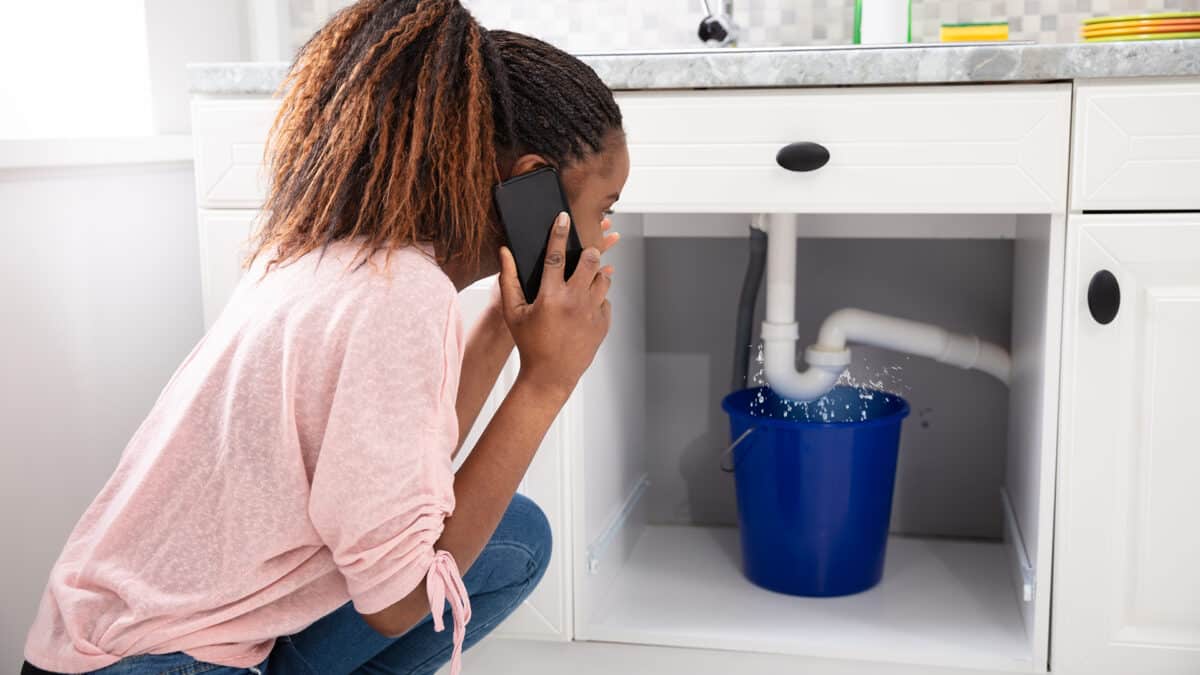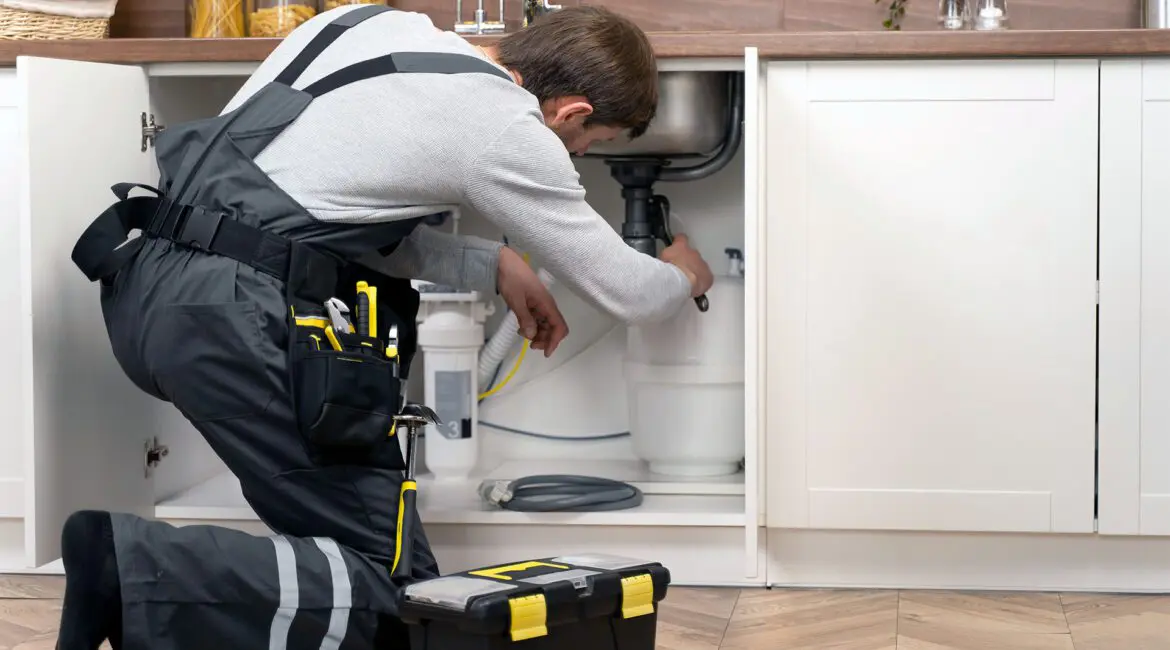Temporary Plumbing Fixes for Critical Situations: Steps to Follow Until Help Arrives
Call TodayJust how do you actually feel about Expert Tips for Emergency Plumbing Repairs?

Plumbing emergency situations can strike at any time, causing anxiety and possible damage to your home. Whether it's a burst pipeline, a clogged up drainpipe, or a leaky faucet, knowing exactly how to take care of the scenario until a professional plumbing technician gets here can conserve you from further problems. This short article supplies crucial emergency plumbing suggestions to assist you alleviate damages and reclaim control during a plumbing crisis.
Shut off the Water System
The primary step in any kind of pipes emergency situation is to shut down the water supply. For localized issues, such as a leaking faucet or toilet, turn off the valve near the fixture. In the case of a major leak or burst pipe, locate your home's main water shut-off valve and turn it off immediately. Recognizing the area of these valves in advance can save valuable time throughout an emergency situation.
Turn off Your Water Heater
In certain emergency situations, such as a ruptured pipeline, it's smart to shut off your water heater. This protects against getting too hot or damage to the unit when water quits streaming. Shut off the power supply to the water heater (electrical or gas) and allow it cool down to avoid possible dangers.
Temporarily Stop a Ruptured Pipe
A burst pipeline can cause substantial water damages in minutes. To mitigate the concern:
Call a specialist plumbing technician instantly to resolve the issue permanently.
Have an Emergency Situation Plumbing Package
Prepare a fundamental pipes emergency situation set to take care of minor issues successfully. Your package ought to consist of:
Having these devices available can make a considerable distinction in your ability to handle emergency situations.
Unclog Drains Safely.
A stopped up drain can be an aggravating and unpleasant concern. Here's exactly how to tackle it:.
If these approaches don't work, prevent making use of excessive force, as it might get worse the blockage.
Handle Overflowing Toilets.
An overruning commode can cause immediate mayhem. Below's what you need to do:.
Address Little Leakages with Momentary Repairs.
Little leakages can swiftly come to be substantial troubles if left uncontrolled. Make use of these short-lived solutions till specialist aid gets here:.
While these solutions aren't long-term, they can assist reduce water loss and damage.
Handle Frozen Pipes Carefully.
In cooler environments, icy pipes are a typical emergency situation. If you presume a frozen pipeline:.
Know When to Call a Professional.
While quick fixes can aid briefly, certain pipes problems require prompt expert attention. Call a plumbing if:.
Immediately getting in touch with a specialist makes sure the concern is fixed appropriately and prevents further difficulties.
Avoid Further Damages.
Taking quick activity to minimize damages can save you money and time in the long run. Right here's how:.
Final thought.
Pipes emergency situations can be overwhelming, however with the ideal knowledge and devices, you can manage the circumstance properly until assistance gets here. By turning off the water system, addressing little leakages, and making use of short-term solutions, you can minimize damage and keep your home safe. Keep in mind, these pointers are short-term options; constantly consult a certified plumbing professional to handle the source of the issue. Prep work and fast thinking are your best allies in any type of pipes emergency.
Expert Tips for Emergency Plumbing Repairs
Plumbing emergencies can be incredibly stressful and inconvenient. Whether it’s a burst pipe, a clogged drain, or a leaky faucet, these common plumbing emergencies need immediate attention to prevent further damage to your home. But before you panic, it’s important to understand the basics of plumbing repairs and the steps you can take to address these emergencies. In this article, we will share some expert tips to help you navigate through these situations and minimize potential water damage.
Identifying Common Plumbing Emergencies
Leaky pipes and faucets Clogged drains and toilets Burst pipes Low water pressure Water heater problems Essential Tools for Plumbing Repairs
Plunger: Useful for unclogging toilets and drains Adjustable wrench: Needed for tightening or loosening nuts and bolts Pipe wrench: Ideal for gripping and turning pipes Tape measure: Necessary for accurate pipe measurements Plumber’s tape: Helps create watertight seals Understanding Emergency Plumbing Services
Emergency plumbing services are designed to provide immediate assistance for unexpected plumbing issues that can cause significant damage to your home, business, or health. These services are typically available 24/7 and are staffed by experienced plumbers who can quickly diagnose and repair a wide range of plumbing problems.
When a plumbing emergency strikes, time is of the essence. Whether it’s a burst pipe flooding your basement or a gas leak posing a serious risk, emergency plumbing services ensure that help is just a phone call away. These professionals are equipped with the tools and expertise to handle any situation, minimizing damage and restoring your plumbing system to proper working order.
What Constitutes a Plumbing Emergency?
Burst pipes or water supply lines: These can cause extensive water damage and need immediate repair to prevent flooding. Gas leaks or suspected gas leaks: Gas leaks are extremely dangerous and require prompt attention to avoid potential explosions or health hazards. Sewer backups or overflows: These can lead to unsanitary conditions and significant property damage. Clogged drains or toilets causing water to overflow: Overflowing water can damage floors, walls, and other structures. Leaks or water damage causing structural damage: Persistent leaks can weaken the structural integrity of your home or business. No hot water or heating: A lack of hot water can be more than an inconvenience, especially in colder months. Common Causes of Plumbing Emergencies
Aging or corroded pipes: Over time, pipes can deteriorate, leading to leaks or bursts. Improperly installed or maintained plumbing fixtures: Faulty installations or lack of maintenance can result in unexpected failures. Tree roots or other debris infiltrating your sewer line: Roots can grow into pipes, causing blockages and backups. Frozen pipes or water supply lines: In colder climates, pipes can freeze and burst, leading to significant water damage. High water pressure or sudden changes in water pressure: Excessive pressure can strain pipes and fixtures, causing them to fail. Natural disasters such as floods or earthquakes: These events can disrupt your plumbing system and cause severe damage. Steps to Minimize Water Damage
Locate the water shut-off valve: Knowing where the valve is can help you quickly cut off the water supply to the affected area. Turn off the water heater: If there’s a risk of water coming into contact with the heating element, make sure to turn off the water heater to avoid potential accidents. Open faucets and drain pipes: By opening faucets and drain pipes, you can relieve pressure and empty any standing water. Collect and contain water: Use towels, buckets, or bins to collect water and prevent it from spreading to other areas of your home. https://leecountyplumbingandwellservice.com/expert-tips-for-emergency-plumbing-repairs/

Do you really like reading up on What to Do While Waiting for an Emergency Plumber? Place feedback further down. We would be happy to see your opinion about this article. In hopes that you visit us again later on. Enjoyed our blog? Please quickly share it. Help other people check it out. Thanks for being here. Kindly pay a visit to our site back soon.
Call